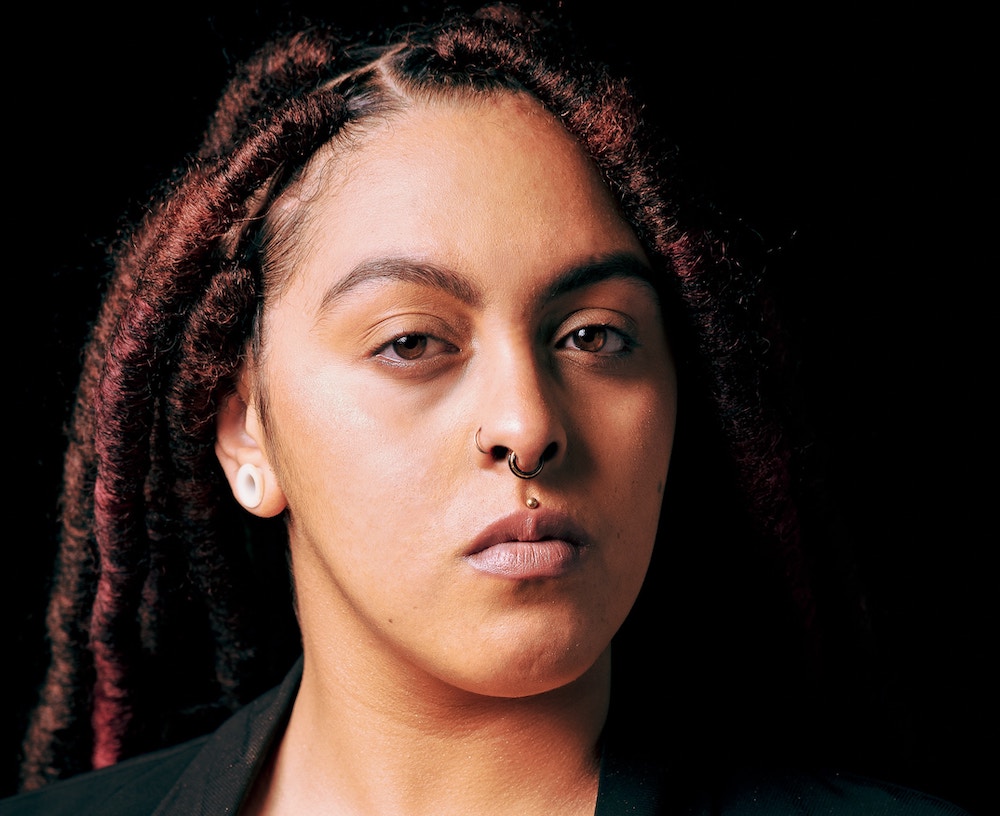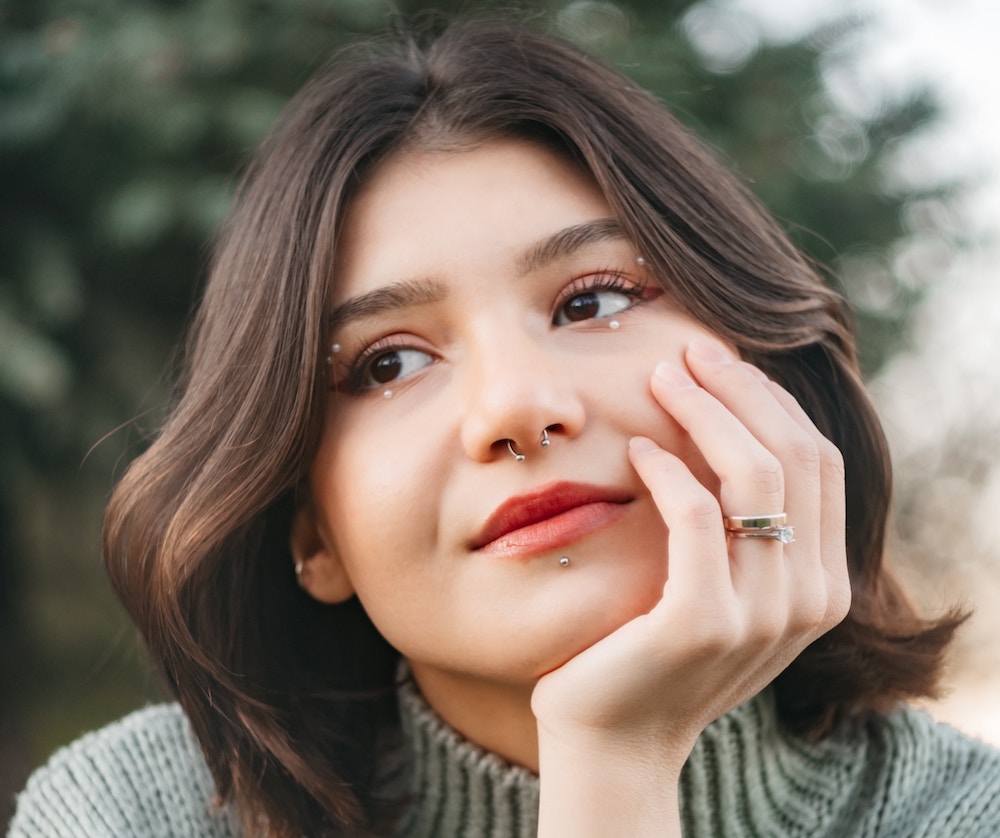Lip Piercing Aftercare: The Best Practices to Help Your New Lip Piercing Heal Safely October 11, 2021 – Posted in: Informative, Piercing Advice – Tags: lip piercing aftercare, lip piercing healing time, mouth piercing aftercare, mouth piercing healing time, oral piercing aftercare, oral piercing healing time
Lip piercing aftercare highlights:
- Clean your lip piercing 2 – 3 times daily with a piercing aftercare saline solution.
- Maintain excellent oral hygiene, and brush your teeth at least two times every day.
- To avoid chomping on the jewelry, make sure that it’s flush with your skin, which may mean switching to a smaller piece when swelling has gone down.
When it comes to piercings, aftercare is generally the same no matter where your piercing is located: keep the piercing clean, keep the jewelry still, and maintain good health practices overall.
However, to ensure the best health for your piercing, you should educate yourself on the unique aspects of your specific piercing. After all, not only does everyone heal differently, specific areas of your body heal differently, too.
So, if you’ve recently gotten a lip piercing or you’re considering one, then you’ve come to the right place. Here’s what you need to know about healing.

Photo by Jassir Jonis on Unsplash
How long does it take a lip piercing to heal?
Most lip piercings take a minimum of 6 – 8 weeks to heal. If you get a piercing in the upper lip, like a Monroe or a philtrum (sometimes called the Medusa), you can expect to spend at least 2 – 3 months on healing. These times might vary depending on your body’s ability to heal, whether you maintain aftercare practices, and other factors. Sometimes, healing takes longer even if you do everything right.
We recommend visiting a piercer to have them confirm that healing is complete before stopping aftercare practices. It will appear healed before the piercing tunnel has fully formed, and you need an expert eye to tell if healing is complete.
What are lip piercing aftercare practices?
To keep your piercing free from infection, gently clean it with a piercing aftercare saline solution 2 – 3 times daily. You can do this by spraying a clean cotton swab or paper towel with the saline solution and gently wiping the front and back of the piercing. Afterward, take a fresh cotton swab and pat the front of the piercing dry.
When you first get pierced, your piercer will fit you with a piece of jewelry large enough to accommodate swelling. While this is common practice for all piercing types, the larger jewelry in a lip piercing poses a unique problem: it’s all too easy to accidentally bite down on the jewelry. Take extra care in the first few days after the piercing as you get used to the jewelry—people have been known to accidentally chip a tooth. Once swelling has gone down, it’s a good idea to visit your piercer and get fit with a smaller piece that poses less of a chomping risk. In the first week or so, you should also choose soft foods while you get used to the jewelry. Cold drinks and food can help with any swelling and discomfort as well.

Photo by Ömer Haktan Bulut on Unsplash
What am I not allowed to do after getting my lip pierced?
During healing, you’ll have a laundry list of don’ts in order to ensure safe healing. Here are the biggest ones.
- No swimming/baths/standing water. New piercings should be kept dry, which means showers only. When you get out of the shower, be sure to carefully and completely dry your piercing.
- Try to talk as little as possible at first. When you talk, the jewelry will move around which could damage the skin and create scar tissue. The larger initial jewelry can also rub against your teeth and gums, causing issues.
- Do your best not to play with the jewelry. It’s incredibly easy to start absentmindedly playing with the jewelry in your mouth, and while your piercing is healing, that could damage the delicate skin. Try to remain mindful, especially in the first few weeks after getting pierced.
- No kissing or intimate activities involving the lips. Not only does this move the jewelry around, but it also passes bacteria between you and your partner that could be harmful to your healing piercing. If you must kiss, do so very carefully.
- Don’t share cups and eating utensils. This can pass bacteria between you and the sharer.
- Avoid acidic and spicy foods. Basically, keep away from anything that you wouldn’t want to rub on an open wound. It’s going to hurt, and it could irritate the piercing.
The list might seem long, but the bottom line is that you’re healing a wound, albeit a small one. To avoid scarring or complications, you simply need to take care of your body, get some rest, and maintain practices similar to what you would do if you had a cold or any other minor wound.
When healing a lip piercing, you have to be a little more mindful than with other piercing types. The good news is that the healing time isn’t too substantial, and you’ll find that once you get the hang of your new lip piercing, aftercare shouldn’t be difficult. And, soon you’ll have an awesome lip piercing that you can enjoy for years.






